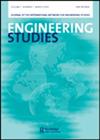工程师在跨界决策中的说服性沟通实践
IF 1.3
3区 工程技术
Q2 EDUCATION, SCIENTIFIC DISCIPLINES
引用次数: 0
摘要
摘要工程师依靠沟通技巧进行跨国界的协作和决策。这项研究试图检验工程师在工作环境中的一种未被充分探索的沟通实践——说服性沟通。对说服性沟通(即寻求影响力的实践)的研究包括在实验室环境和某些背景下(如医疗保健、政治)的广泛探索,但应在工程背景下进一步扩展。使用多案例研究方法,我们探讨了工程师在三个组织中的沟通实践,他们试图进行谈判、建立共识、说服并跨边界做出决策。本研究中的工程师通常使用说服性沟通来获取资源、调整目标并影响设计决策。这些实践是通过三种叙事来呈现的,这三种叙事是基于对访谈和会议观察的分析以及对背景的丰富理解而构建的。这些叙述说明了说服沟通的六个新兴特征:(1)情感参与,(2)参与者的可信度,(3)受众考虑和权力动态,(4)时机,(5)适应性,以及(6)共同的情境意识。这些结果突出了说服性沟通在工程实践中的普遍性,为未来的工作提供了基础。这一发现对支持工程专业学生和早期工程师的发展也有意义。本文章由计算机程序翻译,如有差异,请以英文原文为准。
Persuasive Communication Practices of Engineers in Cross-Boundary Decision-Making
ABSTRACT Engineers rely on communication skills to collaborate and make decisions across boundaries. This research seeks to examine an under-explored communication practice of engineers in work environments – persuasive communication. Research on persuasive communication (i.e. practices seeking to influence) includes extensive explorations within laboratory settings and certain contexts (e.g. healthcare, politics), yet should be further expanded within the engineering context. Using a multiple case study approach, we explored engineers’ communication practices across three organizations as they sought to negotiate, build consensus, persuade, and make decisions across boundaries. Engineers within this study commonly used persuasive communication to gain access to resources, align goals, and influence design decisions. These practices are presented through three narratives constructed based on the analysis of interviews and meeting observations as well as a rich understanding of the context. The narratives illustrate six emergent features of persuasive communication: (1) emotional engagement, (2) credibility of those involved, (3) audience consideration and power dynamics, (4) timing, (5) adaptability, and (6) shared situation awareness. These results highlight the pervasiveness of persuasive communication within engineering practice, providing a foundation for future work. The findings also have implications for supporting the development of engineering students and early career engineers.
求助全文
通过发布文献求助,成功后即可免费获取论文全文。
去求助
来源期刊

Engineering Studies
ENGINEERING, MULTIDISCIPLINARY-HISTORY & PHILOSOPHY OF SCIENCE
CiteScore
3.60
自引率
17.60%
发文量
12
审稿时长
>12 weeks
期刊介绍:
Engineering Studies is an interdisciplinary, international journal devoted to the scholarly study of engineers and engineering. Its mission is threefold:
1. to advance critical analysis in historical, social, cultural, political, philosophical, rhetorical, and organizational studies of engineers and engineering;
2. to help build and serve diverse communities of researchers interested in engineering studies;
3. to link scholarly work in engineering studies with broader discussions and debates about engineering education, research, practice, policy, and representation.
The editors of Engineering Studies are interested in papers that consider the following questions:
• How does this paper enhance critical understanding of engineers or engineering?
• What are the relationships among the technical and nontechnical dimensions of engineering practices, and how do these relationships change over time and from place to place?
 求助内容:
求助内容: 应助结果提醒方式:
应助结果提醒方式:


